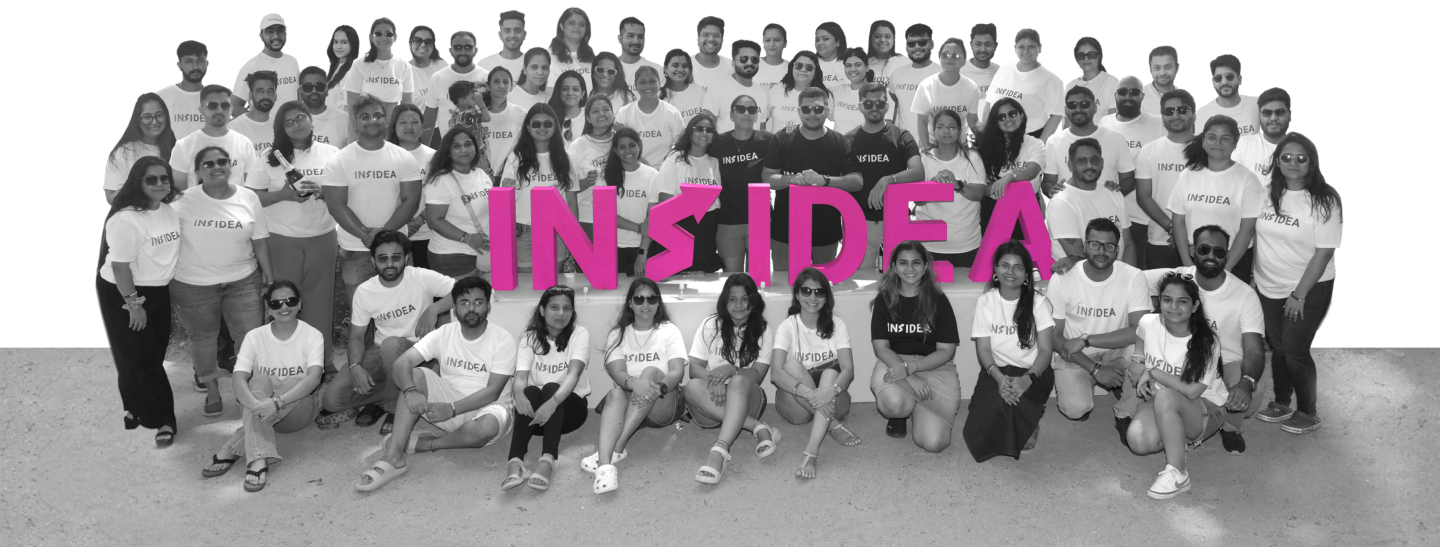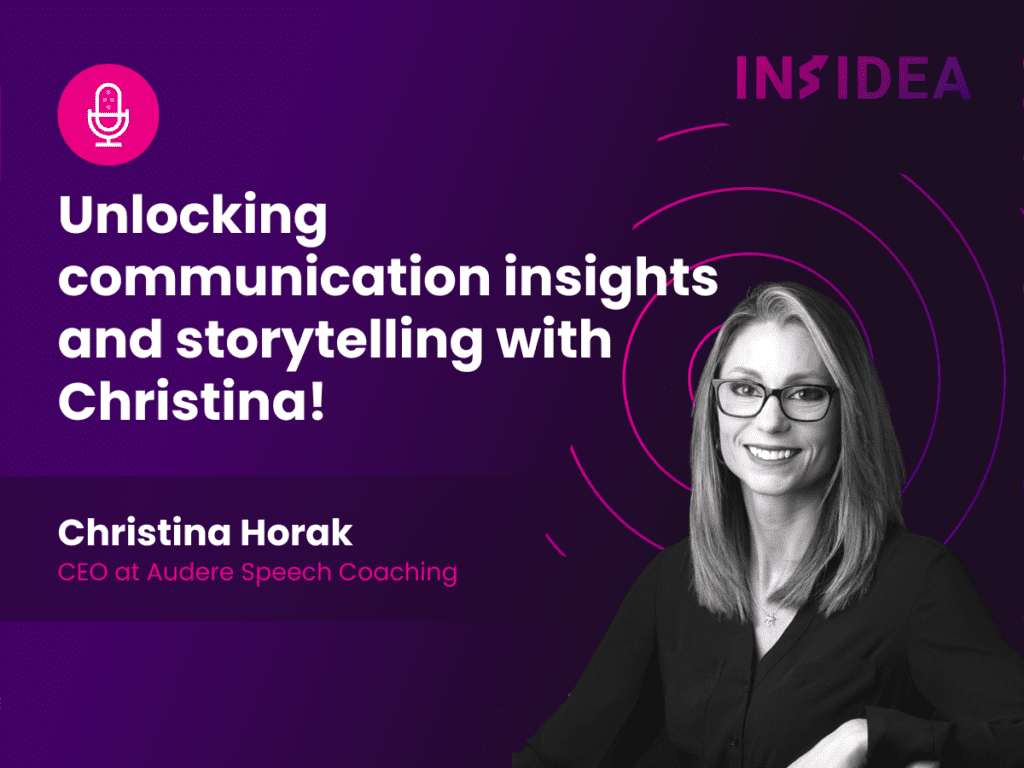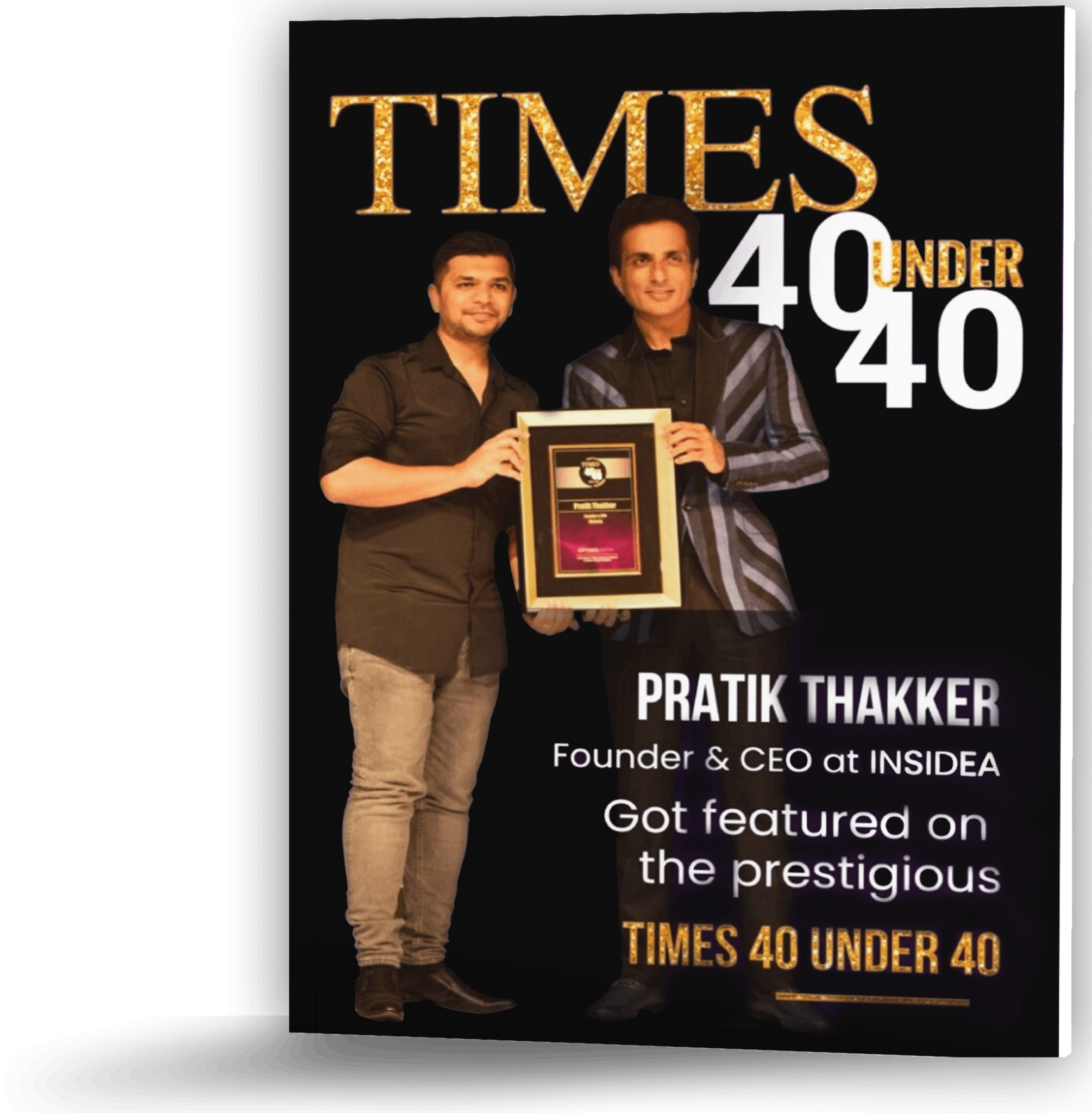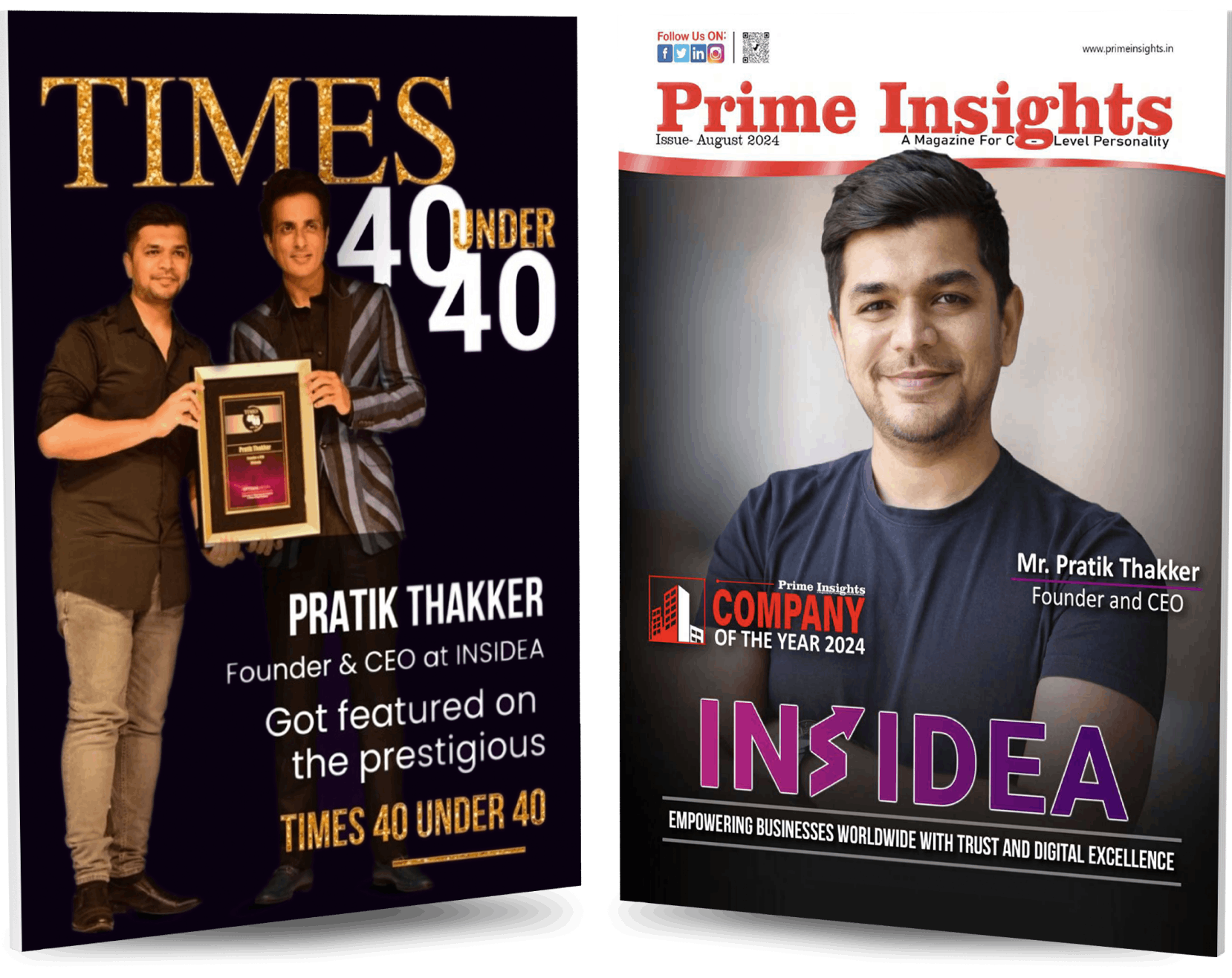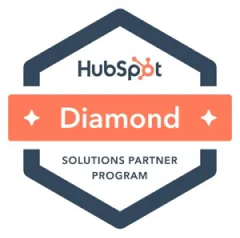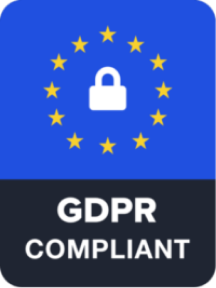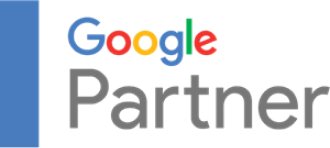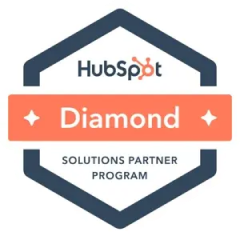Get to know important communication techniques that can help you leverage your business. INSIDEA’s Founder and CEO, Pratik Thakker, will talk to Christina, CEO of Audere Speech Coaching and a serial entrepreneur who helps business owners improve their communication skills.
We’ll hover through the strategies and tactics that made their success possible. So join us as we explore the world of SaaS and learn how to unlock the potential of your own business.
You can watch the full episode on INSIDEA’s YouTube Channel as well as on Spotify.
Pratik
Welcome to SaaS unlocked, the place where we bring amazing entrepreneurs, thought leaders in IT industry. Today I have someone special who I connected with on LinkedIn a while back. She is having multiple businesses ,so I will say serial entrepreneur Christina, welcome to the show. I’ll ask you to introduce yourself, share what you do to the world.
Christina
Thank you. It’s great to be here. So as you said, I’m Christina Horak, I own several businesses, but my passion is executive speaking coaching and So what I do is I work with executives, entrepreneurs and business owners to help them overcome some of those challenges that they have on the communication side when they may have many of those technical skills just to grow their business and build their confidence throughout our coaching.
Pratik
One of the things that Chistina that reminds me of this conversation, you know when I spoke with you first time, I shared with you my personal story. I’m not sure if you remember, but I in my school. Days I had like that fear and so first time I was on stage that was really bad experience. And since then I was like afraid of speaking in public, right? It took some time to come over this fear. And a lot of entrepreneurs are like, you know, introverts or they have some kind of fear when they communicate publicly or even like in team meetings. So how did you like pick this profession? What inspired you to change people’s life?
Christina
Sure. Well, like your story, I had a similar background. I started out in a much different. field and would have never guessed I would be here today, but it’s actually through passion and my experience of overcoming some of those challenges because I am an introverted heart. I was in college and had some experiences where I was so held up and limited and challenged by public speaking and communication. And so as a speech language pathologist by trade, I ended up getting my Masters degree and that’s I took those skills and I honed them in on the business world. And on those people who are highly motivated, very successful, but are sometimes held back by that communication. So the fact that I was able to do that myself, I can help other people do that and just grow their businesses and build that confidence that they really should have.
Pratik
This is incredible. So people who are listening, she is a pro when it comes to like, you know, making yourself to the world when you share your ideas. We all have incredible ideas, but it’s all about delivery, right? Bringing that ideas into reality and if you don’t have what it takes. Or for you to communicate their ideas to the world. It’s a problem to be successful in business and that’s where she comes in and helps entrepreneurs like myself to do the excellent level that they want to be in communication. So just maybe I wanna talk a bit more about challenges that like, you know, entrepreneurs face. You probably consulted like, you know, many entrepreneurs like me. How, how, what kind of like, you know, problems that they come with and what is something that is very common and let’s put it like this.
Christina
Sure. I think a lot of times. Like you said, it’s the fear you have to get out there. You have to share your business idea to the world to be successful. But then also within your team and with your clients and customers, you have to get to a point where you can overcome some of these insecurities just to really help those people. And I think the mindset that service before self really takes a big place here because when we take the focus off of ourself and our insecurities and you know, am I going to mess up when I’m speaking and take that out of play and think. How can I add value to these people? Then you can take those communication skills, really hone them in on to what those actual goals are of adding value to others.
Pratik
When it comes to like running successful business, why you think you mentioned this in your previous question, but emphasizing it more in terms of like improving your communication or the way you communicate with with your team or investors or your customers, how does it impact the actual business growth?
Christina
Sure. Well, if we just look at business.Growth itself, it increases your bottom line substantially. So for example, I work with Intel, I have a couple of clients there and we were able to take their communication and make it more concise, make it more effective. Then we were able to reduce their meeting times. So when they had a meeting of 100 employees, they’re paying them a salary for the time and the meeting, you can cut third off of that meeting. That’s increasing their bottom line. That time is not wasted. And so they can put it into other areas to build their business as well. So that’s just one example. Growth itself, it increases your bottom line substantially. So for example, I work with Intel, I have a couple of clients there and we were able to take their communication and make it more concise, make it more effective. Then we were able to reduce their meeting times. So when they had a meeting of 100 employees, they’re paying them a salary for the time and the meeting, you can cut third off of that meeting. That’s increasing their bottom line. That time is not wasted. And so they can put it into other areas to build their business as well. So that’s just one example.
Christina
The bottom lines and then if you look at client or customer acquisition and retention, there’s another monetary value to improving your communication that you can see within business.
Pratik
So when it comes to framework in improving your communication skill, is there something that you would like to share with the audience or if they consult with you, let’s say one-on-one, what kind of structure that you follow in order for them to change this, change their communication?
Christina
Sure. Yeah. I would always begin actually with an assessment because every person is different and that’s what I love. To do is provide tailored coaching to each business. And so from there what we would do is we look at some very foundational skills that come to both the delivery side, which is how you sound, how you’re perceived from the sound perspective as well as the content side. So that’s our word choice, what we’re saying, how effective those words are to those listening to us. So we take both of those pieces and one is usually more heavily weighted than the other, but we combine both of those to create some foundational skills and then just grow from there. So once we have some security and what those foundations are, then we can, you know, add to that to really make a difference in their life and their career.
Pratik
Well, and how much this coaching like, you know. Is, is it like one time or like six months? How does it take, how long does it take for an entrepreneur to master this skill?
Christina
Absolutely. So I am very against one and done. I don’t see clients one time because can you really be impactful, can you make something sustainable if you have one meeting with somebody? And you can get some great ideas, but the carryover really isn’t there. So my clients work with me for a minimum of three months because my goal is to ensure that they’re carrying these skills over into their career, into their life. They’re effective, they’re making a difference, and it’s sustainable. So anything less than that is really just, it doesn’t have that same weight and level of effectiveness.
Pratik
Yeah, I understand. So maybe like, you know, entrepreneurs like me who had insecurities or were introverts when they started it in like, years. Learn, myself, I wish I had a coach like you back then, but what? What target tips or frameworks that you can share today which we can implement and improve our insecurities or maybe overcome them?
Christina
Sure. A couple different things, #1, there’s no such thing as perfection. So I really, you know, take this home with my clients that everyone is going to have disfluencies, filler words, these stuttering moments, etcetera. So perfection doesn’t exist, but when we look at the big picture of communication we have. There’s two different sides that I mentioned before, the delivery and the content side. So a tip from the delivery side is we often, if we have to speak in front of people, get uncomfortable, we get that anxiety. Maybe you’re pitching, maybe you’re doing a course, public speaking, talking to a client, and you get that tightness and that anxiety and that fear. So something that we can do to combat that is as simple as breathing correctly. We can take diaphragmatic belly breaths is what I call them. And what that does is it actually reduces the adrenaline.
Christina
And cortisol in your body, allowing you to kind of come down, reduce some of that tension, have more clarity of thoughts. And you know, there’s a lot that goes into it that I will not get into today with you. But anatomically that is a great way to help you overcome that anxiety and initial fear of speaking, if you start off with that. And then from the content side, it’s just a quick tip is how can you add value to this person? We often pitch our services, give our resume, tell them what we can do for them.
Christina
How we can fix their problem. But it’s focused on we if we take that mindset, change the content to you, how can we add value to you as opposed to talking about what we can do? There’s just a slight shift there that really makes a profound impact on that person you’re speaking with.
Pratik
Well, you know, when I started my journey on LinkedIn, it’s all about we don’t want to share content, which is something that we like, what’s in it for them? Everything what we do in business or in life, although like all of the relationship also has like what’s in it for them. You know, if you kind of take care of that part, you basically win that battle. I learned pretty late, but it’s an important one. That’s why I bring like founders and experts like you on this show. We can share this with fellow entrepreneurs who can learn early in their journeys. I wanna ask you about like, you know, communication as a broad communication is very broad. There are few types of communication that we do these things right. We are very active while we are in zoom meetings. So there are zoom educates that we need to take care of. We are offline in team meetings when we are in the office or we communicate.
Pratik
On social media, right? And if you are into influencer, content creator or most of the founders are very active on LinkedIn, they share something. What is the difference while you’re communicating in speech or in writing for example?
Christina
Sure. And I think the question you’re really asking is, you know what needs to change in different environments. So whether you’re speaking to the same concept, if you’re one-on-one with a coworker or an employee, you have a very different type of communication, whether it be verbal or written. Than you would if you’re speaking to the masses with no response coming back for public speaking exactly, you know. So I think it’s really a matter of figuring out what value you want to add, whether that be instructional value, whether that be motivational, whether that be something that correlates with a project you’re working on, what is going to be the most effective way to get that to that person. So a lot of repetition isn’t required and mistakes aren’t happening and people understand very quickly and so it’s just it’s taking a few minutes. And thinking about that value going back to that service above self value and that’s what we need to think about.
Pratik
That maybe there’s one thing that I want to ask you right. So I had a few experiences when I was like kind of taking online courses for improving my public speaking right. And they said like you know, you need to be pre planned and like you know script everything. And I tried that part but it didn’t work very well. Like you know, audience was not able to connect with me and when I spoke from my heart like you know, that’s where like you know. Everyone but it, it, it took me like 10-15 different speeches to understand that scripting doesn’t work for me. So,what is your take on like, you know, communication when you you think that we should document everything and have our speech ready or just have like a framework or the pointers that we want to discuss beforehand and then share what we feel from our heart?
Christina
Yeah, I think it needs to be a conversation. That’s the end of the day. You have to have a conversation. If you’re talking at people, they’re not going to get engaged. They’re not going to listen as you are starting. Out I think scripting and having a very clear path is helpful just to start overcoming that because that fear takes over and that gives you almost a crutch to start. But, as you continue throughout your career, yes, have your framework, but be authentic and be you. And something that I came up with a while ago is a concept called VAC Talk. So what this does, yeah, So what this says, you may have seen it on LinkedIn but it looks at different people’s communication styles just like people have learning styles and so you can infuse these different pieces of communication. Into your speeches and talks to draw these different type of people in. For example, you have like the Tony Robbins fans who love the high energy and the very powerful speech. And then you have those people who want to feel it, they want processing time and they want the experience. And so that’s where you tie in stories and emotions and you slow down. So by infusing these different types of characteristics into your speeches, you can draw all of these different types of people in within a huge environment.
Pratik
Story. You mentioned story and that’s one of the key things that I was like, you know, researching a lot about because I’m into marketing, right? And marketing is also about like, you know, communication, you’re communicating with potential prospects, your customers or you’re creating that brand awareness and you’re sharing the word out that you exist, right? And this story can make a huge difference while you’re speaking to anyone. So what is something your take on story, how that can influence your speech and how that can influence the other person listening to you?
Christina
Yeah, I think it causes them to be active. They become cognizant of what’s going on and not a passive listener. And people remember emotion. I can work with somebody, you know, five years ago and they won’t remember the tactics we worked on. They’ll remember how they felt when they used those tactics and their business screw or they built that confidence. You know, they’re not going to remember session by session what those agendas and maps and plans were, but they remember that feeling and that’s what stories do. They draw people in. They can relate, they can feel and they remember.
Pratik
But storytelling is hard and, you know, it requires a lot of practice. And I’ve tried to like, you know, when I’m meeting somebody for the first time, I remember our meeting, yes. And I shared my story with you because I know that you are a communication coach. So I had that experience, right? So I tried to do that quite often. Maybe as an expert, if you can share 3 tips to improve your storytelling skills, that would be.
Christina
Amazing. Sure. Absolutely. And I I want to touch on something as well. Everyone. Says, you know, my stories are not good enough to use. Not true. Everyone has stories they can use that you can relate. And here’s a few reasons why. Everyone has a different experience, but they’re similar to so many other people. So I think about when you’re telling stories, think about the relevance of how other people can engage or relate. So, for example, I was just working with a client of mine and we were talking about a story that he’s going to use in one of his presentations, and we drew in that emotion. So remember when you were young?
Christina
And you felt XY and Z. So having people remember is a huge thing if you can encourage them to remember with the story. The other thing is talk about what you would see, what you would hear if you’re outside, if you’re inside, if you’re in a stadium. And you talk about those characteristics of feeling and they become involved in your story and not just a passive listener. So the first thing, have them relate to it. Remember the second thing of bringing those characteristics of how they can actually immerse themselves into it.
Christina
And then the third thing is be very clear on the outcome of that story and correlate it to what your content is. When you can have that correlation, yhat’s what makes it valid and relevant and really powerful to you as a speaker.
Pratik
This is incredible. This is exactly I’ve practising for a while. But you know, people don’t understand this, but storytelling can make huge impact on your conversation. People will remember you for the rest of their life. So if you master this skill, it can take your communication skill to the next level in my opinion. But thank you so much for sharing this and moving on to the next rapid fire around and where I’ll ask you 5 questions and pretty quick. And so it will be very easy questions, not complicated.
Let’s save the Rapid Fire and the stunning wrap-up exclusively for the Podcast. You can watch the full episode on INSIDEA’s YouTube Channel as well as on Spotify.
Find all podcasts of INSIDEA here.


